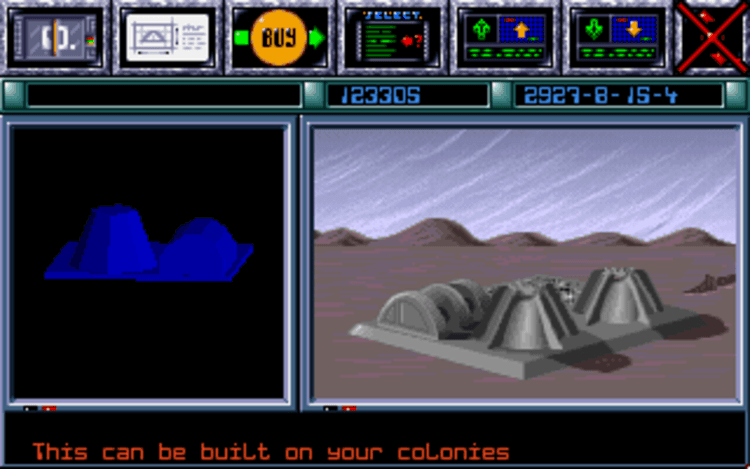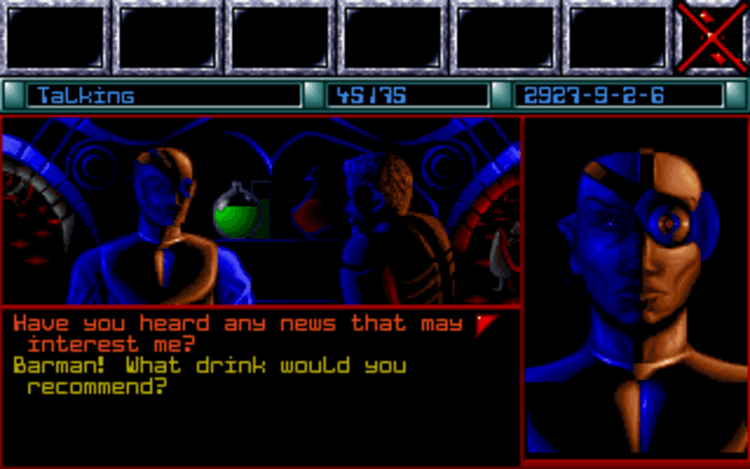
Reunion is a classic space strategy game developed by Amnesty Design, later known as Digital Reality, and published by Merit Software. You guide a struggling human colony on New Earth, expanding across the stars, managing resources, and commanding fleets in a quest to reunite with lost Earth. The game blends colony management, diplomacy, and real-time battles in a style that will feel familiar to fans of Master of Orion and Imperium Galactica. As you play this deep strategy game online or offline, every decision shapes humanity’s distant future.
Reunion is a richly layered space strategy game that thrusts you into the role of leader of a remote human colony, cut off from its homeworld and forced to rebuild civilization among the stars. Developed by Hungarian studio Amnesty Design, later known as Digital Reality, and published by Merit Software, it quickly earned a reputation as a demanding yet deeply immersive strategy experience. Set in a far-future era when humanity has fractured after a violent coup on Earth, the game begins with the colony ship Explorer-2 limping to a new world called New Earth, where the survivors slowly construct a new society and dream of one day returning to their birthplace.
From the opening briefing, Reunion makes its ambitions clear. This is not a quick skirmish or a simple arcade diversion; it is a long-term campaign in which you cultivate infrastructure, research advanced technologies, explore unknown star systems, and build space fleets powerful enough to confront hostile alien empires and, ultimately, reclaim Earth. The central story of exile and eventual return gives the entire strategy layer a strong narrative backbone. Every tax change, every satellite launch, and every newly colonized planet feels like a step in a multi-generational mission rather than just another turn in an abstract simulation.
At the heart of Reunion is New Earth, a planet that starts as a modest settlement and gradually transforms into a sprawling industrial hub. The game uses an isometric planetary surface view where you place structures such as housing, mines, power plants, and factories, balancing energy, population needs, and raw materials. As in classic city-building games, efficient layout and timing are crucial. Power shortages or resource bottlenecks can derail your grand plans just as effectively as an enemy fleet.
A distinctive element of Reunion’s design is the adviser system. Key aspects of your growing empire—research, military, diplomacy, exploration, and industrial development—are overseen by specialist characters you hire and train. Each adviser comes with different strengths, weaknesses, and salary demands, and their competence directly affects how quickly you can unlock new technologies, build ships, or negotiate with alien factions. This mechanic adds a subtle role-playing layer, encouraging you to invest in people as well as buildings, and to consider the personalities on your staff when planning long-term strategies.
Space exploration begins with observatories and satellites that map nearby systems. Once promising planets are discovered, you can send colony ships to establish new settlements, extract resources that New Earth lacks, and add fresh streams of tax income. Gradually, your empire may span multiple worlds, each with its own economic role in a wider network. The interplay between planetary development, resource logistics, and fleet construction keeps the player juggling priorities: should you invest in better ship hulls, faster research, improved defenses, or more profitable mining operations?
Combat in Reunion combines tactical ship engagements with a grand strategic focus. You design and build starships, then deploy them to patrol your territory, escort civilian vessels, or launch offensives into hostile systems. Later in the campaign, you will conduct ground invasions, bringing troops to alien worlds or enemy strongholds. While the interface can feel dense by modern standards, it rewards patience with a satisfying sense of control over every stage of your civilization’s development.
Reunion stands out among DOS strategy games for the way it weaves story and atmosphere into its mechanics. The narrative follows humanity’s attempt to reclaim a home it has lost, and along the way you encounter alien species such as the peaceful Janosians and the warlike Morgul, whose escalating threat pushes the campaign toward large-scale interstellar conflict. Cut-scenes, briefings, and adviser dialogues give context to your objectives, making missions feel like chapters in a grand space opera rather than isolated scenarios.
The audiovisual presentation reinforces this sense of immersion. For its time, Reunion delivered detailed planetary surfaces, busy star maps, and distinctive ship designs, complemented by a memorable soundtrack and atmospheric sound effects. The interface may appear dense at first glance, but its numerous icons and panels are logically organized once you grow accustomed to the layout. The result is a game world that feels alive, with fleets moving between stars, mines pulsing with activity, and research labs quietly reshaping the technological landscape of your empire.
Because the game balances multiple genres—city-building, 4X-style expansion, real-time engagements, and light adventure elements—it appeals to players who enjoy complex, interconnected systems. Fans of grand strategy or space empire simulations will recognize familiar themes, yet Reunion maintains a distinct personality through its narrative focus on returning to Earth and its reliance on advisers as the backbone of your administration.
Although Reunion was originally released for DOS and Amiga computers, it has found new life through modern ways to experience classic games. Today it is possible to play Reunion online via emulated versions that run directly in a web browser, allowing you to command your space colony without installing old operating systems or configuring vintage hardware. In many cases, you can enjoy the full game for free, simply by loading it in your browser window and beginning your mission.
This browser-based approach also means that Reunion can be played on a wide range of devices. Whether you prefer a desktop, a laptop, or compatible mobile devices with touch or external input, you can dive into the same strategic depth and story-driven campaign that defined the original release. Because these online versions typically stream or emulate the original DOS code, the core gameplay, interface, and challenge remain authentic, giving both newcomers and returning fans a convenient way to experience the classic.
Playing Reunion online also makes brief sessions more accessible. You can jump into a few minutes of planetary management, ship design, or exploration whenever time allows, then return to your interstellar plans later from the same device. While the learning curve still demands attention and experimentation, the ability to access the game through a browser lowers the barrier to entry and helps preserve this space strategy landmark for future generations.
When placed alongside other space strategy titles of its era, Reunion holds up as a uniquely ambitious blend of narrative and systems. Its focus on exiled humanity searching for Earth, rather than on abstract conquest alone, gives every star system and diplomatic encounter a sense of emotional weight. The combination of planetary city-building, multi-world resource management, adviser development, and tactical combat creates a layered experience where there is always another decision waiting—another technology to unlock, another fleet to commission, another colony to nurture.
Compared with other classics, Reunion can feel slower and more methodical, but this deliberate pacing is part of its charm. You are encouraged to think in decades, not minutes, and to see your empire as an evolving organism. The game’s structure rewards careful planning, long-term investment in advisers and infrastructure, and a willingness to learn from mistakes. Once the systems click, Reunion offers a satisfying feedback loop where your early industrial choices echo through late-game battles for control of Earth and the wider galaxy.
For players who appreciate depth and atmosphere more than instant gratification, Reunion remains a rewarding journey. It is a reminder of a period when strategy developers experimented boldly, layering narrative and management systems to create experiences that were both challenging and memorable.
Reunion is a classic DOS space strategy game that asks you to guide humanity from the fragile beginnings of a distant colony to the triumphant reconquest of its homeworld. It mixes planetary building, interstellar exploration, diplomacy, and fleet combat into a single cohesive campaign, anchored by a strong story and distinct audiovisual style. The controls rely primarily on mouse input for selecting menus, managing buildings, issuing ship orders, and navigating the star map, with keyboard shortcuts and arrow keys often used for finer control and quick access to important screens.
All used codes are publicly available, and the game Reunion, including its characters, story, visuals, and underlying technology, remains the property of its original authors and rights holders.
Share game
Share game








Share game